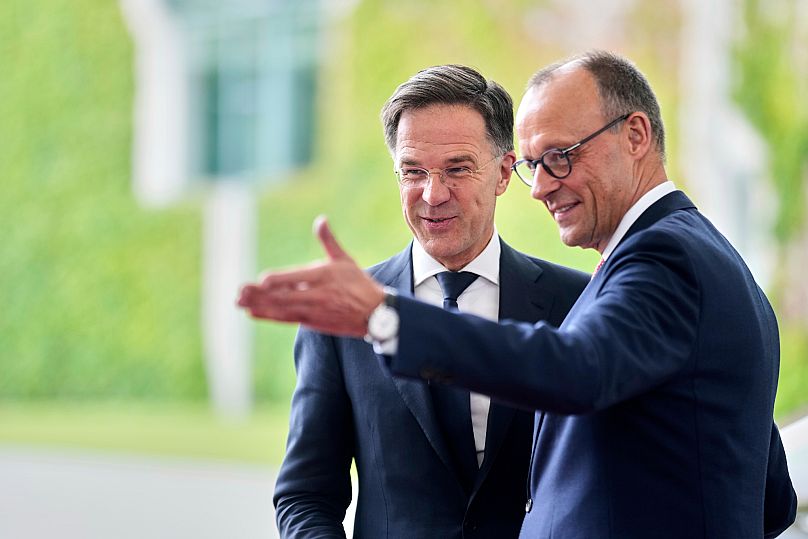German Chancellor Friedrich Merz received NATO Secretary General Mark Rutte in Berlin on Wednesday, ahead of the 70th anniversary of Germany in the defence alliance.
NATO members recently agreed to significantly increase military spending, following demands from US President Donald Trump that Europe takes more responsibility for its own defence.
Defence spending is at its highest since the Cold War and the new level for NATO allies is at least 5% of a country's GDP, before 2035 at the latest.
During a NATO summit in the Hague at the end of June, Merz signalled that he expects Germany to take a leading role.
"We will use these resources wisely and methodically and expand the Bundeswehr into an army that is exemplary in the alliance. We will procure new equipment on a large scale, with a special focus on new technologies," Merz told journalists.

Both Merz and Rutte underlined the commitment to Ukraine and said the priority is to bring about a ceasefire with Russia as soon as possible.
Merz accused Russia of "terrorism against the civilian population" following increased attacks.
"This has nothing to do with a war against military targets," he stressed.
The German chancellor said there are "signals from Washington to reconsider Kyiv's support for air defence," and promised that Germany would make a "substantial contribution."
The NATO secretary general said that Europe is not producing enough military supplies and welcomed the increase in defence spending.
"The problem isn't the USA or Europe. The problem is that we in Europe and the USA don't produce enough. We're getting better. But right now, as we speak, Poland, Romania and Estonia are buying from South Korea - because it takes too long to buy in Europe or the USA. That's the problem. That's why we need to increase production together," Rutte said.
As tensions between France and Germany mount over fighter jets, Merz said discussions are ongoing but highlighted the project could be a good collaboration between France, Spain and Germany, if they can reach an agreement.
Rutte also spoke about China’s ambitions and said WWIII could be likely within the next three to seven years with Russia able to launch a full-scale attack against NATO territory to keep Europe busy whilst China attacks Taiwan.







